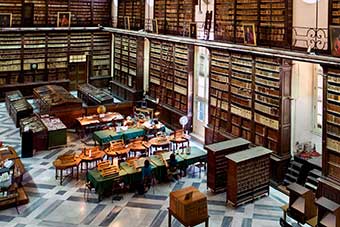
Hard right, tinfoil hat, conspiracy theorist Simon Mercieca “reported” that “my friend” Lara Comi, an MEP from Forza Italia, has been sentenced to more than four years in prison for corruption.
He also said Lara Comi was David Casa’s friend and a friend of the people he calls “Repubblichini”, his idea of an irritating collective insult to describe the members of Repubblika.
I don’t know David Casa’s network of friends. Lara Comi, an MEP of the same party of David Casa’s, would at the very least have been his colleague. As for myself I never heard of Lara Comi before Simon Mercieca proclaimed her my friend. I never met her, never talked to her, was never anywhere where she was. I can safely say the same for Repubblika because I’ve been part of that organisation since before it had a name. Lara Comi was never anywhere near any of it.
This is no error of fact that Simon Mercieca made. It’s slander by association. His years long campaign has been an effort to discredit me and Repubblika. The diminutive ‘Repubblichini’ is intended to belittle us. But that’s not enough for Simon Mercieca. He wants people to think of us as hypocrites because that would deprive us of our right to criticise others.
How could I be the ‘enemy’ of Yorgen Fenech for bribing ministers for a public contract, if my ‘friend’ is in prison for corruption? That’s what Simon Mercieca hopes to achieve: you asking yourself that question.
At the service of that mission, he is prepared to lie, invent things from scratch, conjure from thin air friendships and associations that have no basis in fact.
I sent Simon Mercieca a reply which he published accompanied with what in his mind is ‘evidence’ that he was right. The evidence, such as it was, was a European Parliament resolution Lara Comi voted on (alongside dozens of others) which said something about Daphne Caruana Galizia. So now, anyone who has ever spent a moment to think that it was a bad thing that Daphne Caruana Galizia was killed is, by implication, my friend, and I am guilty by association of any wrong thing any one of them may ever commit. For ever.
This would be ridiculous were it not for the specific profession of Simon Mercieca. He is a historian whose professional function is to conduct research, document facts, and bring us all as close to an understanding of reality as the facts available may allow. He is supposed to be busting myths, not making them.
If a hospital doctor tortures cats in their basement during their free time, questions will be asked about their intellectual and psychiatric eligibility to conduct their profession. How can someone who wilfully inflicts harm, be relied upon to do no harm during office hours?
How can anyone rely on Simon Mercieca to give an honest interpretation of the facts as he discovers them during his professional hours, when he spends most of his days wilfully lying about people, joining dots that he fabricates with lines that he imagines?
How does the history department of the university coexist with this? How does the arts faculty? How is the entire university where he works willing to ignore this gross misconduct of one of its staff?
Apologists for Simon Mercieca say that as an academic he is exceptional in his willingness to openly express his opinions. Academics should fear no retribution for speaking openly and critically. I couldn’t agree more. We need academic freedom because we need the competence and expertise only academics are endowed with to inform public discourse and debate.
The fact they are academics is not incidental to the right of academics to speak freely. The fact they are academics is, on the contrary, crucially relevant and central to that right. We need academics to speak freely because they are academics.
The basic ethical rules of being an academic apply to their public interventions and expressions as much as they apply to their peer reviewed publications. Those basic ethical rules exist to make sure that those of us who are reading what they write can rely on their honesty and consequently their credibility. According to those rules, Simon Mercieca would not be able to publish a scholarly article in a journal unless he was able to show that the factual claims that underpin his analyses and his conclusions are backed by evidence.
Academic ethics do not allow a historian to claim, for example, that they know Jean de Valette had 3 testicles unless they can quote some source that can justify that conviction, say, the diary of his doctor. Historians can much less say that the non-fact they have invented justifies their belief that, say, Jean de Valette was particularly vicious with his general staff because of his (imaginary) triorchidism. Simon Mercieca would, one would hope, not do that when writing about Jean de Valette. His peers would stop him.
But no peer stops him when he lets rip on his blog. His conduct reflects on his silent peers. His colleagues condone his grotesque lies and that brings them down with him. Perhaps, unlike Lara Comi and I, Simon Mercieca’s colleagues are really his intimate, albeit mute, friends.